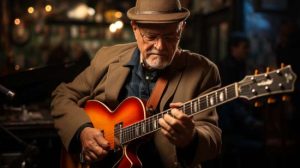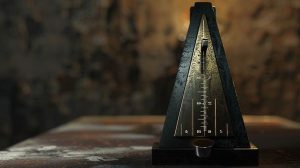
The Benefits of the Ear to Instrument Connection
I recently watched a video performance by the amazing classical pianist Yuja Chang. I’ve seen her memorizing motion and heard her virtuosic playing before, but something hit me after seeing
Categories:
Categories:
“The audience comes last. I’m not making it for them. I’m making it for me. And it turns out that when you make something truly for yourself, you’re doing the best thing you possibly can for the audience.”
That was spoken by the legendary rock music producer Rick Rubin, about his new book, The Creative Act: A Way of Being.
That resonates with me because I’ve never been capable of creating something for the purpose of it being popular with, as Rubin labels it, the faceless masses. That’s a good thing for me I suppose since I play trombone (“Do they even make those any more?”) and I enjoy crafting eclectic sonic soundscapes under curious visuals!
I’ve lately had a conversation with several people that goes something like this: I think the music I’m putting out there is really good but it is NOT catching fire the way I expect/want it to. Some of these players are bothered by their lack of popularity and others are at peace with the size of their small but enthusiastic audience. I fall into the latter category.
If you ponder this for yourself, into which category do you fall? I hope you are at peace with the size and return on your particular audience but I think that most are not. In the comments below, I’d really like to hear from you on this.
Yes, life requires money. And unless you are a trust fund baby, money requires earning it in some capacity. But in making that living, is your focus on maximizing income or is it in maximizing the satisfaction you receive from your art–performing, teaching, producing, painting, writing, recording, etc.?” Rubin contends that your best chance for success comes from pleasing yourself first.
I recently heard a moderately well-known Hollywood actor reflect on finally making the money he always wanted, but now at this point in his life, he’s never been less happy/satisfied. How did this come to be? Did he accept roles mainly for the money or for the dreamed-of popularity? (He actually said something like, “I’m now less interested in being alive.”) I don’t know, but his decisions somewhere along his career were not likely motivated by his fundamental core values.
“But Mike, I didn’t become a musician in order to get rich–like that actor did.” No, but are your career choices geared in some fundamental way toward dollars or some other currency like social likes, views, followers, or fame? Those things aren’t bad as a result of your authentic art, they are only if they are the primary motivation to get out of bed every morning and work hard. Think about your underlying motivation. How is that steering your artistic efforts or career choices?
“If you start from the position that there is no right or wrong, no good or bad, and that creativity is just free play with no rules, it’s easier to submerge yourself joyfully in the process of making things.
We’re not playing to win, we’re playing to play. And ultimately, playing is fun. Perfectionism gets in the way of fun. A more skillful goal might be to find comfort in the process. To make and put out successive works with ease.”
– Rick Rubin, The Creative Act: A Way of Being
If you feel that your quest for popularity, likes, shares, etc. might be driving you to do gigs, recording, videos, and social posting that is not authentic, should you right the ship?
Try an experiment. Purposefully create something with no concern for an audience. What music or other artistic activity could you create that is wholly satisfying to you? You might be surprised how much of an audience values your authenticity. Yes, you’ll have to allow them to find you, but they will be your raving fans. 1,000 of those is worth much more than 100,000 viewers who mindlessly hit the follow button without giving it much attention. Back to your motivation… Did Coltrane record A Love Supreme because he thought it would make him wealthy?
In fact Richie Beirach and I wrote a book on this very topic: Great Art and Commercial Success
I recently started an experiment on Instagram. I’d never been on Instagram, mainly because my professional efforts were never geared toward visuals, and I had no interest in posting a pic of what I ate for lunch today or of my pals and I out drinking too much.
But as I’ve built my skills at generating AI art, I now have an outlet for storing these strange and wonderful images. So one month and 94 posts later I have a whopping 22 followers and a small handful of “likes”. But by posting only those images that I’m most proud of, I have the best possible chance of building a following. Go ahead and follow me if you like what I’m creating, I’m just not posting things geared to gaining followers. This leads to the rhetorical question, why would anyone buy faceless social followers?
Back to Rick Rubin. We know that having a bigger enthusiastic audience often translates into more money, assuming you know how to monetize your audience. The question is, how do you best grow that enthusiastic audience as big as possible? The point I’m laboring to make is that I believe it comes from holding true to your authentic artistic vision rather than chasing after likes, views, or other false Gods of popularity.
Consider this thought experiment: even if you gained success by pandering to an audience, would the additional money/fame make you a happier person? Would you end up years from now confident that you left nothing of your artistic abilities on the table when the game was over? Is that important to you?

Trombonist, author, marketer, & tech guy
Share this post…

I recently watched a video performance by the amazing classical pianist Yuja Chang. I’ve seen her memorizing motion and heard her virtuosic playing before, but something hit me after seeing

I have created a AI chatbot called Jazz Master Chat that draws from 75 hours of interviews from my Jazz Master Summit event a couple of years ago. I interviewed

What is jazz improvisation? Let’s first define what I mean by jazz improvisation. Jazz improvisation is a spontaneous conversation, but instead of words, we use notes. Look at two possible

My recently turned 18 year old son is a passionate photographer He 8217 s got himself a little business

A couple weeks ago I sent Richie Beirach a YouTube clip from the movie Whiplash as a bit of

I originally meant to write this as a reply to a comment Richie Beirach wrote on my blog But

Tools for helping musicians at all levels learn about jazz and play to their full capability.
Web design and marketing by:
Michael Lake @JazzDigitalMarketing.com
This is just a fake book example for the type of website I can build for you. Just trying to use a little humor here!
2 thoughts on “Our quest for popularity”
“First, I play for myself, then the other musicians, and then the audience, in that order.” – Dizzy Gillespie
great article, thanks! I feel like I have been authentic in my creative output so far but since moving to NYC I started thinking about what I could do different to get certain gigs for example… I can see now that this is the wrong way to go and will nip these thoughts in the bud.